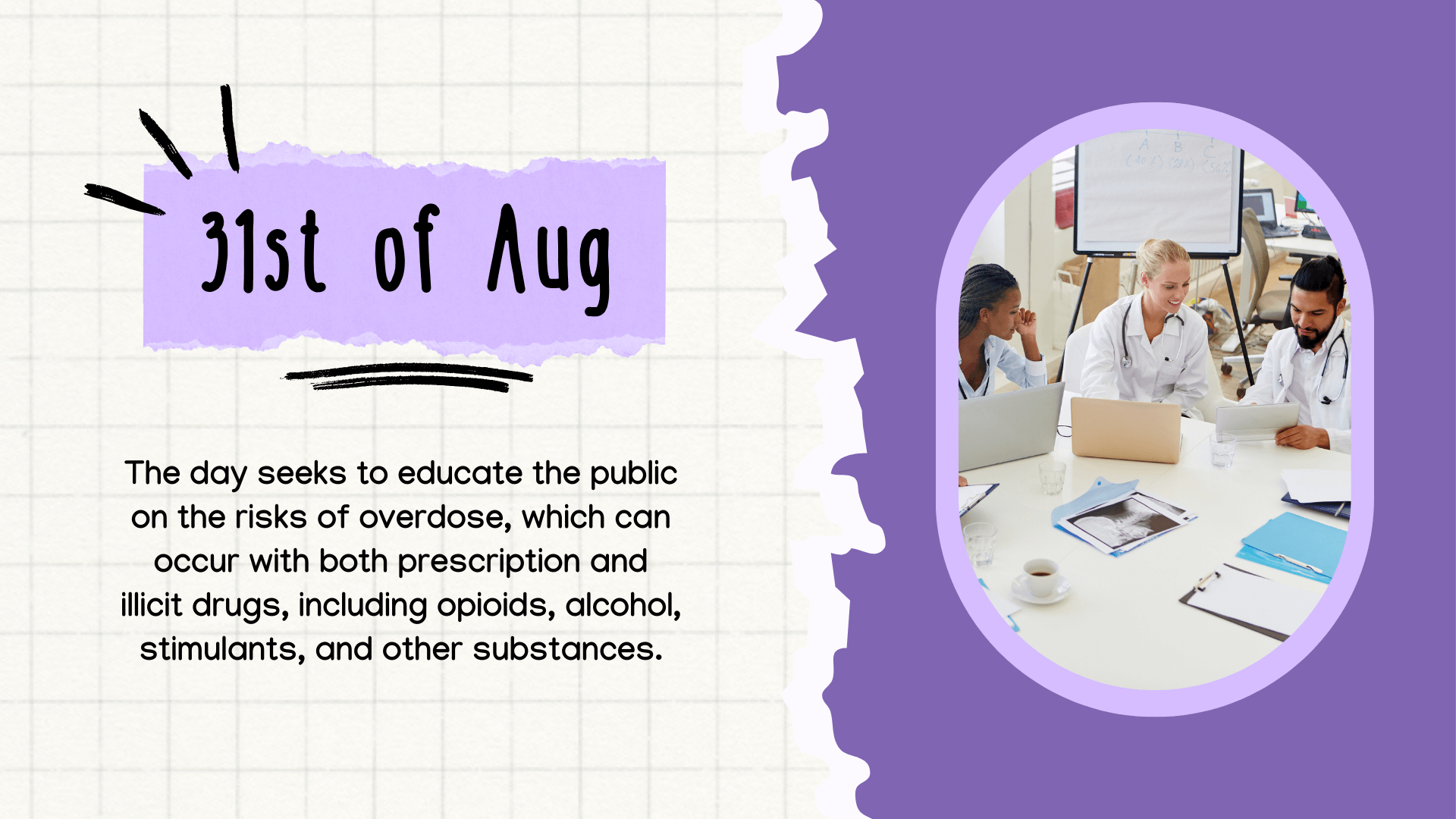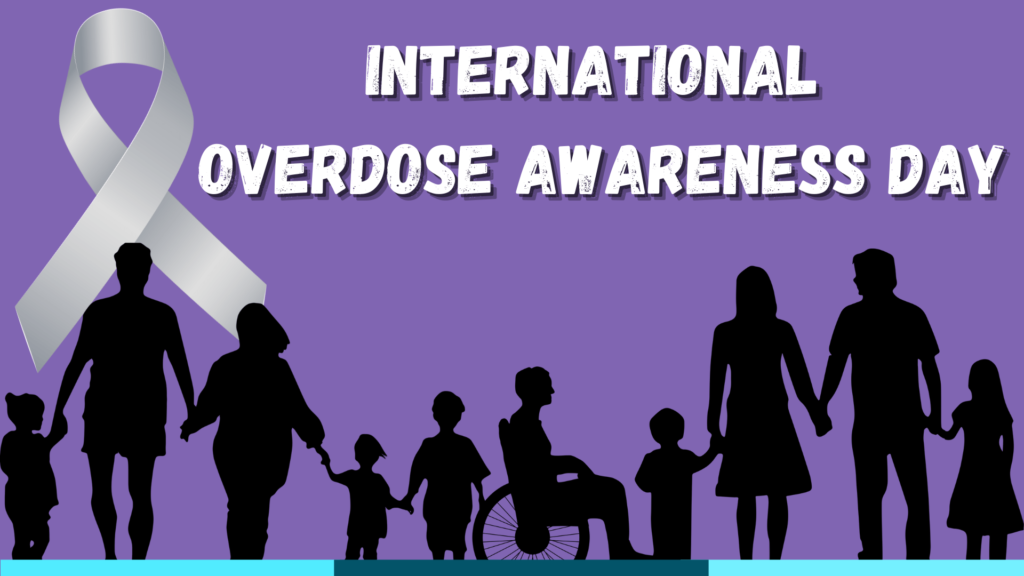The Global Crisis and A Worldwide Appeal
The International Overdose Awareness Day is celebrated every year on 31st August so as to raise awareness of overdoses on a global level. This global event has the objectives of advocacy to draw attention, demand removal of discrimination and call for action to end drug overdose fatalities. For this reason, it is essential to familiarize ourselves with the problem and face the challenge head-on as the opioid epidemic takes more lives across the world.
The Origins and Significance
First observed in the year 2001 in Melbourne Australia by Sally J. Finn, this event has expanded and become an international one known as the International Overdose Awareness Day. It commemorates the people who died due to overdose and recognizes the pain of relatives and friends to lose them in such conditions. It also commemorates the lives that have been saved from the situation in overdose and also acknowledges the efforts of the hard working employees in this line of work. Overdose is another condition that is endangering the lives of people in the society today. Going by the World Health Organizations report, half a million people die of drug abuse every year, most of which are attributable to opioids. Especially, the United States experienced the opioid crisis, and more than 100 thousand people died from opioid overdose in 2021.  Though, this is not a problem confined to the Americans only. Many countries including Canada, Australia and European and Asian countries are not exempted from the fight against drug overdose. This is a worldwide problem and as such, requires collective or rather an international approach and policy.
Though, this is not a problem confined to the Americans only. Many countries including Canada, Australia and European and Asian countries are not exempted from the fight against drug overdose. This is a worldwide problem and as such, requires collective or rather an international approach and policy.
Principal Goals and Aims of the Day
- Raising Awareness: It’s used to inform people of the availability and dangers of drugs as well as the possibility of a fatal overdose. He also stated that its ability is to reduce misconceptions on drugs and educate people on the facts concerning them and their impacts.
- Reducing Stigma: A key challenge to reducing and preventing overdose is massive in that, the culture of drug use is a major warped policy. This day prevents discrimination and highlights the possibility to speak about the problem to change the attitude towards people addicted and to understand addiction as a disease.
- Promoting Prevention: Especially important to identify are the ways of preventing overdoses. This encompass understanding how to use drugs safely, signs of overdose and last but not the least understanding that one should never use drugs alone.
- Advocating for Policy Changes: It is a day to demand that the government should come up with policies which may help in preventing overdose deaths such as increasing access to take home naloxone and implementation of safer consumption facilities.
 Strategies for Overdose Prevention
Strategies for Overdose Prevention
- Several strategies have shown promise in reducing overdose deaths: Several strategies have shown promise in reducing overdose deaths:
- Naloxone Distribution: Access to naloxone, especially to high risk users of opiate drugs and their friends and families has been instrumental in saving lives.
- Medication-Assisted Treatment: Making the medication such as methadone and buprenorphine available has been helpful in dealing with opioid dependency and the cases of overdose.
- Harm Reduction Programs: Services including needle exchange and supervised injecting facilities have been proven to help in decreasing the instances of lethal drug over dosage and cases of infectious diseases transmission.
- Education and Outreach: The main deterrent to drug abuse involves giving the correct information to the users about the drugs, its impact, and the consequences of taking a wrong dosage.
The Role of Technology
Recent years, most important successful stories in preventing overdoses are connected with the use of technology. Some examples of how technology is being used to tackle this issue include, mobile apps that help connect people to naloxone carriers near them, wearable devices that can detect an overdose, virtual visits for addicts seeking treatment.
Challenges and Future Directions
Nevertheless, one can still identify potential problems. COVID-19 complicates the overdose crisis in many countries and the important lessons have emerged from overstretched and adaptable public health systems. Further, new opioids of high potency in the market such as fentanyl have made overdose prevention a herculean task. In future, experts insist on further prevention, treatment, and harm reduction as well as on the state policy. Other factors include factors like offering underlying causes for substance use disorders including physical, sexual, and emotional abuse throughout a person’s life, mental health disorders, and social needs.
In future, experts insist on further prevention, treatment, and harm reduction as well as on the state policy. Other factors include factors like offering underlying causes for substance use disorders including physical, sexual, and emotional abuse throughout a person’s life, mental health disorders, and social needs.
Conclusion
Overdose Awareness Day is an International event whose importance cannot be overlooked as it helps to focus people’s attention on overdose as a still pervasive problem. This is needs active intervention from governments, healthcare institutions, communities and people in order not to let such preventable deaths occur. Spoons and Think Compile them, educate people that misunderstanding or negligence may lead to fatal overdose and support practices based on available evidence. On this day we should make sure to stand with the families that have been touched by addiction and to fight for the prevention of further loss.
Written By: –

Rtr. Imeth Nenuka
(Blog Team Member 2024-25)
Edited By:

Rtr. Pamodi Hewawasam
(Blog Team Member 2024-25)


